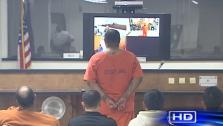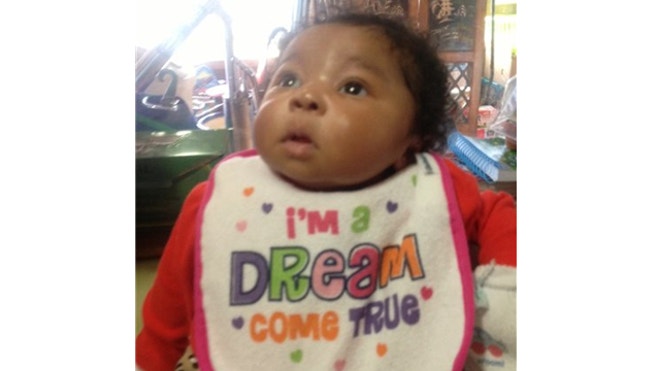Time and Form
 |
| Hooked on Reading at 8 Months |
By Peter Hyatt
In Statement Analysis, the issue of time is an important one. We view time in four distinct ways within a statement:
- Objective Time
- Subjective Time
- Form
- Temporal Lacunae
We view “form” as a complete overview of a written statement.
As said elsewhere, the order in which someone speaks is always important, and order can be viewed within the subject of “time” as when something is out of chronological order, it is a sign of deception.
Let’s look at our we measure “time” within a written statement.
- Objective Time
Objective Time is any time mentioned within a statement by the subject. We then take the time mentioned and write it on the margin of the paper exactly as the subject wrote it.
- Subjective Time
Subjective Time is a measurement (connected to “form”) of the pace of the statement. This is done by counting the number of lines in a statement, and measuring the passing of Objective time.
- Form. Form is the overall breakdown of an event as written by the subject. In the form there is generally an introduction, a description of the event, and then what happened after the event.
- (Form) will be shown in a separate study besides the brief entry here.
- 4. Temporal Lacunae This is when we encounter missing gaps of time as seen by phrases such as “the next thing I know” and “later on” as well as “after” or any other term that spans time. We highlight any Temporal Lacunae in “pink” so that we are able to revisit the time period in our interview.
Petty Fund Missing
“At 6a, I got up, turned off my alarm clock, brushed my teeth, and hit the shower. I ate some pop tarts and left the house at 6:50AM. The traffic was really bad and I had to make some stops and get gas. At the gas station I saw a guy I knew and talked for awhile about my car. The brakes have been making noise lately and he works there part time and said he could fit me in next week but I don’t know how much money it is going to cost.
I got to work around 7:20a and listened to my messages. I had a large number waiting for me because I took off time from work the previous week. I also had to collect data from each of the supervisors and get them each to sign the right forms which meant going to each office.
At 8a I had to be at a meeting and at 9a I knew the boss would be waiting for the report.
At 10a I finished up the report from yesterday. Left the office for awhile. Gym. Signed out. 12p is usually lunch and at 2p I finished my typing.
At 230p I was feeling sick from not drinking enough water which sometimes happens at the gym. I usually work out at high intensity and if I don’t drink enough fluids I can become sick to my stomach. After that I knew I needed to get work done.
1p I met with the boss. He told me about the missing petty fund. It was the first I had heard someone tell me about it. I don’t think he thinks I did it or anything but he talked to me a lot about it as if I knew what happened to it. I feel like he wasn’t accusing me or anything, but I don’t remember what I said to him about it.
At 2:30PM I told him that I still felt sick and left.
Met my boyfriend for the first time that day. He was angry that the boss maybe thought that I knew what happened to the missing cash. We went to the pharmacy and then got home later.
I gave my final report in that day from the day before at 9:30a. The boss acts like I always forget but I don’t.
Around 6p I ate dinner with boyfriend. I think I was probably watching TV when I fell asleep afterwards. I turned out the light and went to sleep.
- Objective Time.
Objective time is what she told us, using mostly 8a, 9a symbols. When there is a change, we note it and will ask questions about the time period that is marked differently. In the interview, the investigator learned 6:50AM was significant because her boyfriend was screaming at her. The investigator learned this because during the interview, having marked “brushed my teeth”, he asked about her boyfriend and she revealed fear of him. She ran from him at 6:50AM into her car. The investigator also noticed that 2:30PM was not the usual 2:30p. This was due to the guilt she felt when the boss questioned her about the money.
In her statement, she goes out of chronological order towards the end, where she wrote “9:30a”. Because the investigator simply wrote the objective times on the margin of his photocopied statement, he found it out of order. This is an indication of deception. When truthful innocent people speak or write from memory, they can recall it forwards and backwards. When something is out of order, it is “just remembered” and is an indication of deception within the statement (not necessarily at the time, but in the statement, overall). We mark this as a sign of deception and proceed attempting to learn what it is that the subject is being deceptive about.
- Subjective Time.
Subjective time is a measurement uses in Statement Analysis to indicate deception within a writtenstatement.
Years of data compiled since the 1920’s has shown that people will normally write about 3 lines per hour when writing what happened. In other words, they will devote an average amount of information per passing hour.
In shift investigations, staff are told to write out what they did during their shifts, which may include overnight asleep time. Therefore, we remain flexible about the averages used. However, the principle remains the same:
Any deviation from average is noted.
So, if a staff person averages only 1 line per hour (which in a criminal or civil investigation would be flagged as deceptive), we will measure 1 line per hour as average, and flag any strong deviations from it.
The norm is 3 lines per hour. When someone writes 1 line per hour, or less, it means that at that time frame, deception is present. If someone writes above 9 lines per hour, deception is coming soon in the statement.
Why?
It’s actually simple.
Let’s say that you stole your office phone at 12:30PM, while everyone was down in the cafeteria.
It was discovered to be missing.
Because 20 people worked there, interviewing all of them would be difficult, so instead, we interview them through the use of the Questionnaire. The Questionnaire is a few short questions in which those who are truthful are quickly cleared (sometimes it only takes a few moments in reading Page 8 of the Questionnaire). The likely percentage would be that of the 20 people who filled out the questionnaire, 14 of them are immediately cleared and dismissed, with 6 remaining.
We then review the 6 remaining and view the other pages. Likely, there will be 5 who will be cleared by the other pages.
There is one left.
We then take the one left and use Statement Analysis on page 5 which asks the subject to write out what they did from the time they got up until the time they went home.
Now, the person who stole the phone writes out, on page 5, everything they did from the time they woke up, until the time of this writing.
They KNOW that they stole the phone at 12:30PM.
How will they write?
Just like anyone would write who knows that they have done something wrong.
They will slow down the morning pace.
Why?
Because they don’t WANT to get to 12:30PM when the phone was stolen! This will be evidenced by lots of extra details at 8AM, 9AM, etc. Then suddenly, at 12PM, they will likely write very little (and may drop the pronoun “I”) until they get to the after lunch period, and then write what they did from 1PM until 5PM at a more normal pace, perhaps 3 lines per hour.
At 6AM, they were writing a comfortable 2 or 3 lines per hour until, perhaps 8AM when they arrived at work. Now the pace is about to slow down.
At 8AM, they were writing upwards of 6,7, 8 or even 9 lines per hour; stalling. This is an indicator to the investigator that deception is coming soon. (9 lines per hour and above is considered to be 100% deceptive in investigative statements.)
But at 12noon until 1PM, they glossed over it quickly. Why? Because lying (and stealing) is stressful and they want to “get past it” quickly! After the theft, the subject returned back to a more normal pace.
This change is noted by the investigator, who has analyzed the statement BEFORE conducting the interview, and presses questions around the 12 noon time period touching upon the sensitivity of the theft eventually producing an admission of guilt.
This is why we measure Subjective Time before an interview.
- Form
The same studies that have concluded that investigative statements are considered normal to have 3 lines per hour (we may allowance for investigations that have overnight staff) and 1 line per hour or less to be deception present, and above 6 lines per hour to be deceptive (with 9 lph being the threshold for certainty) have also concluded that the form of a statement will also indicate truthfulness and deception.
We know that when an investigation is done around a particular event, innocent and guilty people alike will describe what happened by introducing the issue, writing about the issue, and reporting what happened after the issue.
For instance:
A client was assaulted by staff.
A staff who witnessed the assault may write something like this:
I. Introduction: I was walking the client to her day program. She was having some challenges that day.
This is the introduction and we would expect it to be shorter than the actual assault.
II. The client began to become agitated and yelled at me and Staff B. The consumer said she did not want to go to day program and picked up her soft drink and threw it into the face of staff B. Staff B was very angry and turned to the consumer and said, “You don’t do that to me! Now I have to change my shirt” and I saw Staff B slap the consumer across the face with her open hand.
The issue is the assault and the witness has used more lines to describe the assault.
III. Then, I told Staff B to go inside and calm down and took the client back to the house and called the supervisor.
The “after event” is also short. This would be an indication of veracity based on its form.
The “form” is one indicator of truth or deception. Honest statements are generally within the bounds of:
25% introduction
50% body of what happened
25% post event
Our sample statement is 10 lines long.
2 lines beforeslap
6 lines describing slap
2 lines afterslap
20 % pre event
60% event
20% post event.
This falls close to our expected parameter and would be deemed reliable based upon its form.
85% of deceptive people to the “before” time than the do to the “after” (LSI)
Investigators are taught: prior to the interview, photocopy the statement. Before reading the statement: Circle all pronouns. Then, count the number of lines in a statement. If the subject has used more than 33% of the statement without getting to the subject, the Interviewer should suspect that deception might be present within the statement.
In overlapping shift investigations, this is difficult to measure when staff is describing several days of shifts (where it is not known what day money went missing, for example) but it most useful in investigating a single event where the time of the event is known but staff is denying, for example, assaulting a client. .
This is also most useful in the “he said; she said” discrepancies that we often face.
Allegation: Client at a nursing home reports being slapped in the face by Staff B. Client is well known to fabricate. No physical evidence of the slap exists.
Staff B denies hitting client.
Staff A reports witnessing the slap.
Staff B and Staff A used to date and had an unpleasant break up.
This is the “he said; she said” standoff that can be easily dismissed.
An agency faced something similar to this in which Staff B accused Staff A of sexual harassment. The Agency said that their usual protocol would be to have each staff write out a statement but in this case, the “he said; she said” appeared to be unsolvable. They reported that Staff B denied being in a relationship with Staff A. No witnesses; no text messages, love letters, etc. Agency asked if I could help.
I received the two statements, photocopied them, and circled the pronouns. I reported back to the Agency that they needed to confront Staff B and say “I have inside information that reports that you and Staff A did actually have a relationship. How do you explain it?”
The Agency did and reported back to me that the lawsuit wasn’t going forward, as Staff B admitted being in a relationship with Staff A. How did I know?
I measured the form because it was one particular date and time where Staff B alleged that Staff A had cornered her in the break room and made suggestive comments. I found Staff B to test deceptive.
I also circled the pronouns.
The pronoun “we” was used in sensitive areas.
“We” told me that there was cooperation between them and that Staff A had been factual (his statement tested reliable on its form). Staff B was transferred to another location and quickly began a new relationship with another staff, just as Staff A did after Staff B’s transfer. Staff will give us no shortage of practice in analyzing statements. J Both described each other as “friends”, but one said “a friend” and the other said the stronger “my friend”, which gave an indication of closeness. Staff B wrote “I didn’t think my friend would say such things to me”, rather than “a friend” which told me that there was closeness there that Staff B did not want the reader to know about.
With Subjective Time, 70+ years of research has shown:
The average written investigative statement is between 1 and 1 ½ pages long.
The structure or “form” of a statement is a quick linguistic lie detector.
Be flexible with the 25/50/25 form, but not any extremes as deceptive.
If 85% of deceptive people give long introductions, take note of the quick post event language. “I wrote up a reportable and that’s it”. Usually, when an event has taken place, peripheral staff will be impacted about what happened and will talk to this person or that person and may include emotions in the conclusion.
- Temporal Lacunae
“And after that, I…” tells us that time has spanned by, and we do not know, from the statement what happened. “The next thing I know, the consumer woke up and said her money was missing” tells us that the subject has passed over time and has left out information.
A temporal lacunae does not, by itself, indicate deception. It means that information has been left out which the subject either does not consider important, or, the subject knows it is important and has left it out on purpose.
The rule of thumb: flag any passing of time (pink if it is in a written statement) and make a note to visit it in the interview.
“You said, “the next thing I know”; tell me about that. “I don’t remember.” When you encounter this response do not accept it. “Take a moment. What happened? “ and “what happened just before that?” and continue to dig using vague and open language.
The following are the answer to the most common questions that subjects ask us, especially if we have identified deception in the written statement, on its form. The subject is stalling and may even seek to build an impasse:
- Where should I begin?
A. From the beginning.
Q. What do you want to know?
A. Everything
Q. But that would take a long time.
A. Tell me what you think is important for me to know.
Q. Ask me specific questions and then I will tell you.
A. How can I ask you if I don’t know? Answer me and then I’ll ask you specific questions.
Subjects want to know what we know. This last request will come from a subject who likely has some guilt or guilty knowledge of abuse, neglect or exploitation, and wants to find out what it is that you, the Interviewer, know, so that the subject can lie. Specific questions give this information away and may contaminate the interview. Closed ended questions, especially early in an interview, not only reveal what you know, but teaches a subject how to lie.
If the subject pauses, we should not tell them to go on. We should wait and look at him. Wait with patience and confidence.
This impasse may arise at the temporal lacunae, which now tells you that the information is sensitive and it is something the subject does not want you to have. It will be revisited until we get the information we need. This is exhausting work.
The temporal lacunae and the quickening pace generally are seen together. It is difficult to pick up audibly during an interview, but does come with practice.
If you hear a phrase like, “and then later on” along with a missing pronoun, you are likely at the place where the event took place, and likely speaking to the person responsible for abuse, neglect, or exploitation.
Since pronouns give us ownership, and we see by the temporal lacunae that the subject does not want to take “ownership” of the time that passed, you will likely find that he will drop pronouns.
Returning to our sample statement:
“At 6a, I got up, turned off my alarm clock, brushed my teeth, and hit the shower. I ate some pop tarts and left the house at 6:50AM. The traffic was really bad and I had to make some stops and get gas. At the gas station I saw a guy I knew and talked for awhile about my car. The brakes have been making noise lately and he works there part time and said he could fit me in next week but I don’t know how much money it is going to cost.
I got to work around 7:20a and listened to my messages. I had a large number waiting for me because I took off time from work the previous week. I also had to collect data from each of the supervisors and get them each to sign the right forms which meant going to each office.
At 8a I had to be at a meeting and at 9a I knew the boss would be waiting for the report.
At 10a I finished up the report from yesterday. Left the office for awhile. Gym. Signed out. 12p is usually lunch and at 2p I finished my typing.
At 230p I was feeling sick from not drinking enough water which sometimes happens at the gym. I usually work out at high intensity and if I don’t drink enough fluids I can become sick to my stomach. After that I knew I needed to get work done.
1p I met with the boss. He told me about the missing petty fund. It was the first I had heard someone tell me about it. I don’t think he thinks I did it or anything but he talked to me a lot about it as if I knew what happened to it. I feel like he wasn’t accusing me or anything, but I don’t remember what I said to him about it.
At 2:30PM I told him that I still felt sick and left.
Met my boyfriend for the first time that day. He was angry that the boss maybe thought that I knew what happened to the missing cash. We went to the pharmacy and then got home later.
I gave my final report in that day from the day before at 9:30a. The boss acts like I always forget but I don’t.
Around 6p I ate dinner with boyfriend. I think I was probably watching TV when I fell asleep afterwards. I turned out the light and went to sleep.
We have seen that the subject had sensitivity in the home life with her boyfriend, was rushing off to work while arguing, had a change of pace at 8a, and dropped the use of pronouns when she left her office.
- Did she go to the gym?
- We don’t know; therefore we cannot say that she did go to the gym. By leaving off the pronouns, she would like us to think that she went to the gym. The sudden disappearance of pronouns shows distance, as she “removes” herself from the gym.
Note: We not only circle all pronouns, but we make a circle where a pronoun should be.
This woman was arrested and charged with theft. Her boyfriend was abusive and pressured her into it to support his drug habit. The money was taken from “petty cash” something employees often kicked in for special luncheons and parties. She claimed to have left work not feeling well, which was truthful; she was sick to her stomach worried that she would be caught. Notice also in her language that she “knew what happened” to the missing fund, which is now “cash”. The “fund” became “cash” when she gave it to her boyfriend, as “cash” is spent, but “fund” is collected and held for a purpose. Notice “told” instead of “said” in relation to the boss, who is not properly introduced (poor relationship).
The boss had suspected her because there had been rumors around the office that she lived with an abusive drug dealer, and had come to work under the influence of narcotics a few times. Although arrested, an agreement was reached to return the stolen money and enter rehab as well as receive counseling for the domestic violence.
For Time,
We view Objective Time, which is the times the subject mentions in the statement. We note any changes in how it is expressed, and we note that if anything is out of chronological order, there may be deception.
We view Subjective Time, as most investigative statements are 1 to 1 ½ pages long, and average 3 lines per hour. We make allotment for long shift investigations where long periods of staff time, written often as a “log” are submitted, and note any change in the pace.
We view the overall Form of a statement, knowing that any deviation from 25% introduction, 50% event description, and 25% post event may indicate deception. This is a powerful linguistic polygraph device that can be a time saver for busy investigators.







-2.jpg)

















